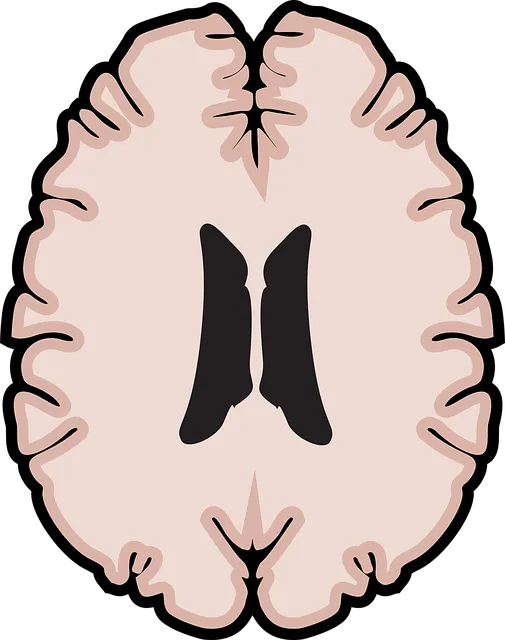Centennial Kaiser Permanente offers comprehensive mental health coverage, addressing trauma's profound impact on individuals' well-being. By acknowledging trauma's diverse manifestations and consequences, they provide personalized care through cultural competency training and effective communication strategies. This approach fosters trust, empowers patients, and facilitates the development of self-care routines for enhanced mental health and healing. Their holistic approach, combining evidence-based practices with continuous professional development, sets a standard for trauma-informed care, benefiting both individuals and communities.
“Trauma, an indelible mark on the human psyche, necessitates specialized support systems. This article explores comprehensive trauma support services, focusing on the pivotal role of organizations like Centennial Kaiser Permanente in revolutionizing mental health care. We delve into the far-reaching impact of trauma and how extensive mental health coverage, such as that offered by Kaiser, can transform lives. Additionally, we uncover effective strategies for delivering trauma-informed care, emphasizing the importance of understanding and addressing this complex issue.”
- Understanding Trauma and Its Impact
- The Role of Centennial Kaiser Permanente in Mental Health Support
- Uncovering the Benefits of Comprehensive Coverage
- Effective Strategies for Providing Trauma-Informed Care
Understanding Trauma and Its Impact

Trauma is a profound and complex experience that can leave lasting effects on an individual’s mental and emotional well-being. It’s important to understand that trauma doesn’t discriminate; it can impact people from all walks of life, including those within communities served by institutions like Centennial Kaiser Permanente. This healthcare provider, recognizing the significant role they play in their patients’ lives, offers comprehensive mental health coverage, addressing not just the symptoms but also the root causes of distress.
Effective support begins with acknowledging the diverse nature of trauma and its far-reaching consequences. From post-traumatic stress disorder (PTSD) to anxiety and depression, the impact can be profound and multifaceted. Communication strategies play a crucial role in this process, enabling individuals to express their experiences and emotions safely. Additionally, healthcare provider cultural competency training ensures that support is tailored to meet the unique needs of each patient, fostering an environment where self-care routine development for better mental health becomes a viable path to healing and resilience.
The Role of Centennial Kaiser Permanente in Mental Health Support

Centennial Kaiser Permanente plays a pivotal role in providing mental health support to its diverse community. As a leading healthcare provider, it offers comprehensive mental health coverage, ensuring accessibility and affordability for all members. The organization’s commitment extends beyond insurance; they actively invest in fostering a culture of care and understanding. Through their initiative on Cultural Competency Training, Kaiser Permanente equips its staff with the knowledge and skills to offer sensitive, effective support tailored to individual needs, especially within diverse cultural contexts.
This holistic approach is further strengthened by focusing on boosting confidence among individuals seeking help. By implementing evidence-based communication strategies, the healthcare provider creates safe spaces where patients feel empowered to share their experiences and engage actively in their treatment plans. Such initiatives not only enhance the quality of care but also foster a sense of community and trust, ensuring that everyone has access to the support they need for their mental well-being.
Uncovering the Benefits of Comprehensive Coverage

Uncovering the profound benefits of comprehensive mental health coverage is a pivotal step in fostering better trauma support services. Organizations like Centennial Kaiser Permanente play a crucial role in this regard, offering extensive mental health coverage that addresses a wide array of issues, from acute traumatic events to chronic stress. This holistic approach ensures that individuals receive the care they need, when they need it, promoting resilience and recovery.
The impact extends beyond individual healing; it ripples into communities. Public Awareness Campaigns Development initiatives, centered around themes like Positive Thinking and Mind Over Matter Principles, can significantly enhance understanding of trauma and its aftermath. By demystifying mental health challenges, these campaigns encourage people to seek help without stigma, creating a more supportive environment for those navigating trauma’s complexities.
Effective Strategies for Providing Trauma-Informed Care

Effective trauma-informed care recognizes that past traumatic experiences shape an individual’s present responses and behaviors. To provide this care, mental health professionals at Centennial Kaiser Permanente should prioritize understanding each patient’s unique history. This involves creating a safe and non-judgmental environment where patients feel empowered to share their stories. Active listening, empathy, and validating emotional responses are key components in building trust and fostering open communication.
Integrating evidence-based practices like Stress Management Workshops Organization sessions, incorporating Emotional Healing Processes tailored to individual needs, and promoting Self-Care Practices can significantly enhance trauma recovery. Regularly updating training programs to reflect the latest research ensures professionals remain equipped with effective tools for supporting patients through their healing journeys.
Trauma is a pervasive issue that requires specialized care, and organizations like Centennial Kaiser Permanente play a pivotal role in providing comprehensive mental health coverage. By adopting trauma-informed strategies, such as those discussed in this article, healthcare providers can offer more effective support to individuals affected by traumatic events. The benefits of these approaches are evident, leading to improved outcomes and enhanced well-being for those seeking help. With organizations like Centennial Kaiser Permanente setting the standard, there is hope for a brighter, more supportive future in trauma care.






